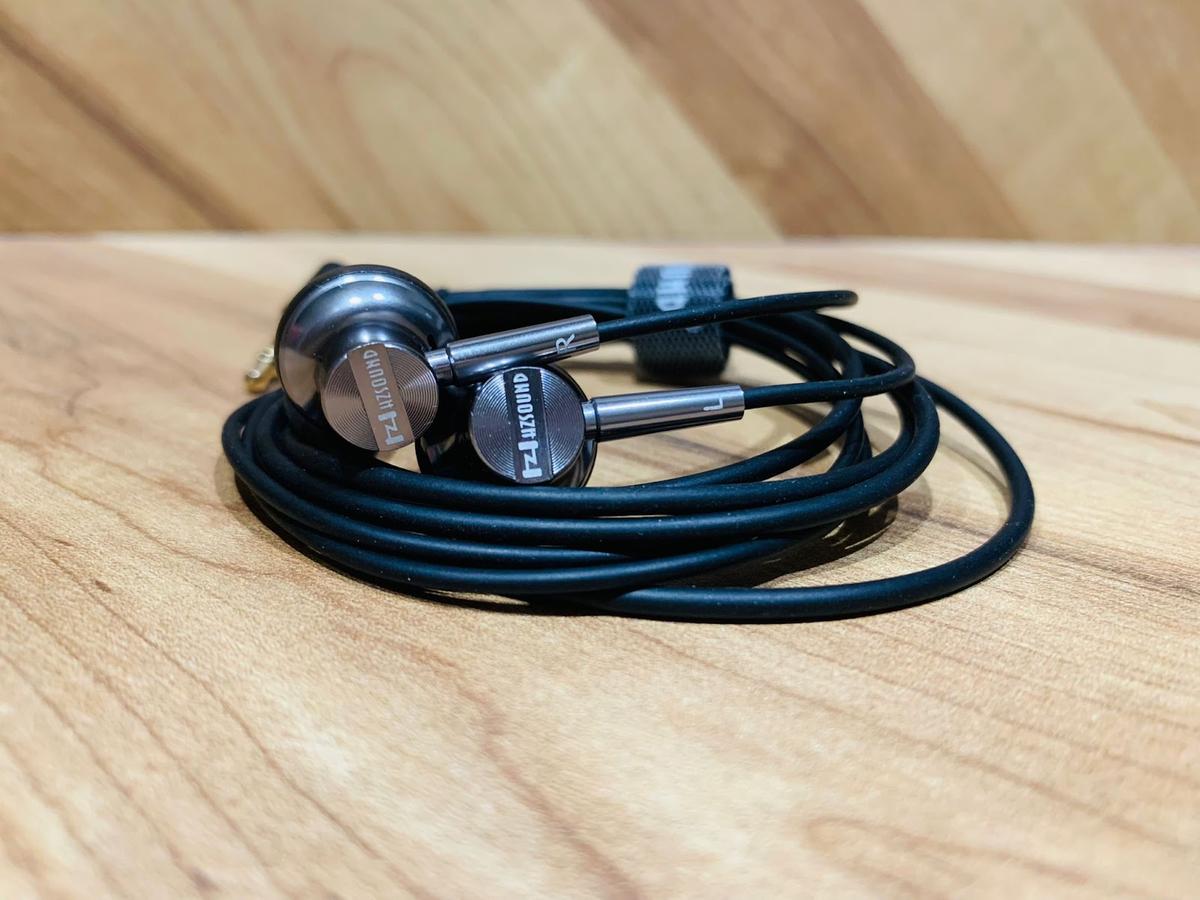The Bell Rhyme are a more than decent pair of budget earbuds, sharing their roots with the same manufacturer that gave us the cult-classic Heart Mirror IEMs.
The brass bell (铃 in Chinese) is a venerable percussive instrument which has long been used in traditional Chinese music, dating all the way back to the Shang dynasty. The bell was also used as an ancient Chinese ornament on flags, horses, and carriages.
- Good build
- Comfortable
- Imaging, layering, and instrument separation are a highlight
- Excellent timbre and tonality
- Superb price-to-performance ratio
- Lacks sub-bass and treble extension
- Not the most detailed
- Non-detachable cable
Will this pair of earbuds make us exclaim “Hell’s Bells!”? Or will they be clear as a bell?
I’m glad to report they are closer to the latter!
Company Overview
HZSound was formed in 2014. The engineering team has more than 10 years of experience in the audio field. They launched their first pair of earphones in September 2014 (the HZSound EP001), followed up by the HZ3ii, the HZ5, and the HZ5 Pro.
They are most famous for the Heart Mirror IEMs, which are a very popular amongst budget audiophiles for their neutral bright and technical sound signature.
Technical Specifications
- Form: Earbuds
- Drivers: 1 x 15 mm composite polymer diaphragm dynamic driver
- Impedance (Ohm): 32 Ω
- Sensitivity (dB): 116 dB/mW
- Frequency Response (Hz): 15 Hz – 40 KHz
- Removable Cable: N
- Cable: OFC cable
- Mic: There is a mic and non-mic version
Packaging
An unassuming black package is here to greet the customer.
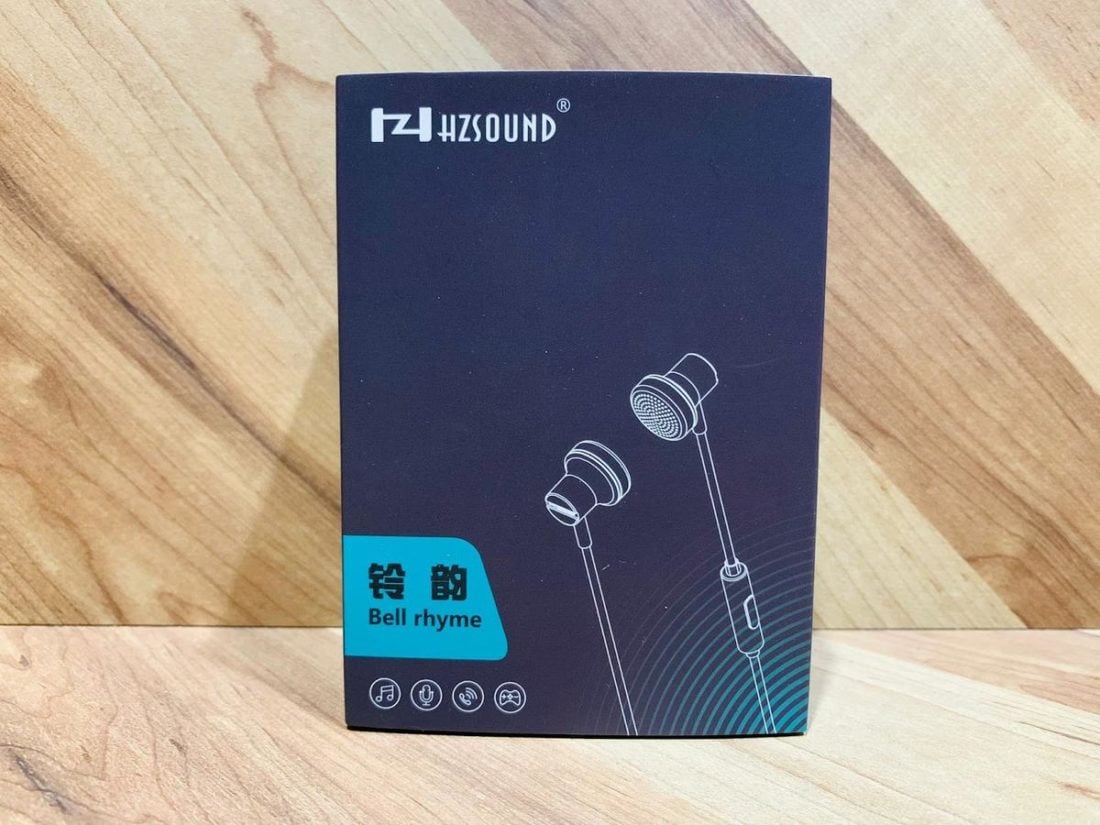
In the box
- HZSound Bell Rhyme earbuds
- 2 pairs of donut foam covers
- 2 pairs of full foam covers
- Denim-like carrying pouch
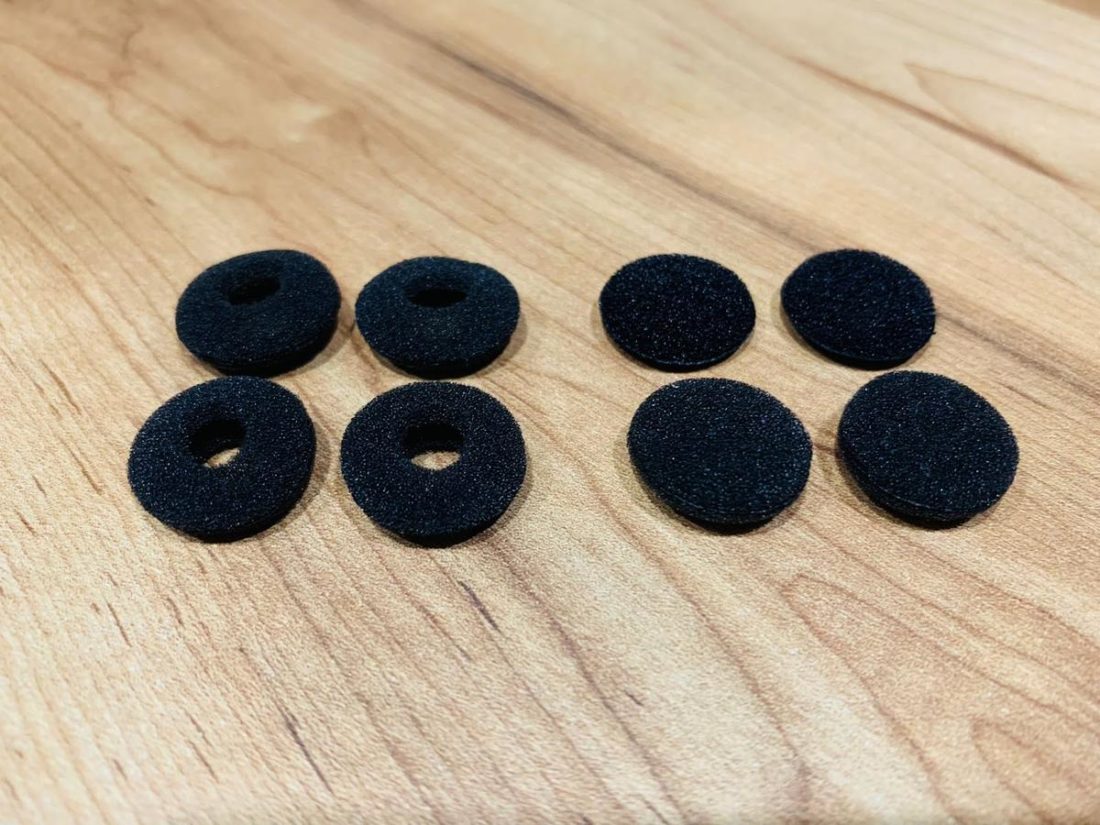
The full foam covers add more bass and warmth to the sound signature, whereas the donut foams give less bass and more clarity in the upper frequencies.
Cable
Unfortunately, the cable is non-detachable, which is pretty standard for most budget earbuds. In fact, even some top-of-the-line earbuds (such as the Fiio EM5 and Moondrop Chaconne) do not have detachable cables.
While not exactly an alarm bell, non-detachable cables may be a point of failure down the line. Not to mention some of us want to cable-roll or connect bluetooth adapters, but it is what it is. In general, most earbuds are priced much cheaper than IEMs, so a detachable cable is omitted to cut costs. Hence, this is one area where I can look the other way.
Saved by the bell! Thankfully, the cable has no microphonics, and does not tangle easily.
A mic or non mic version is available during ordering. I got the latter, so I was not able to test call quality.
Case
The denim pouch is quite a classy addition, considering some earbuds do not come with one.

Design
The Bell Rhyme are machined using an aluminum alloy. The build is good compared to some plastic earbud shells, and I have no concerns about their durability. They are meant to be worn cable-down only.
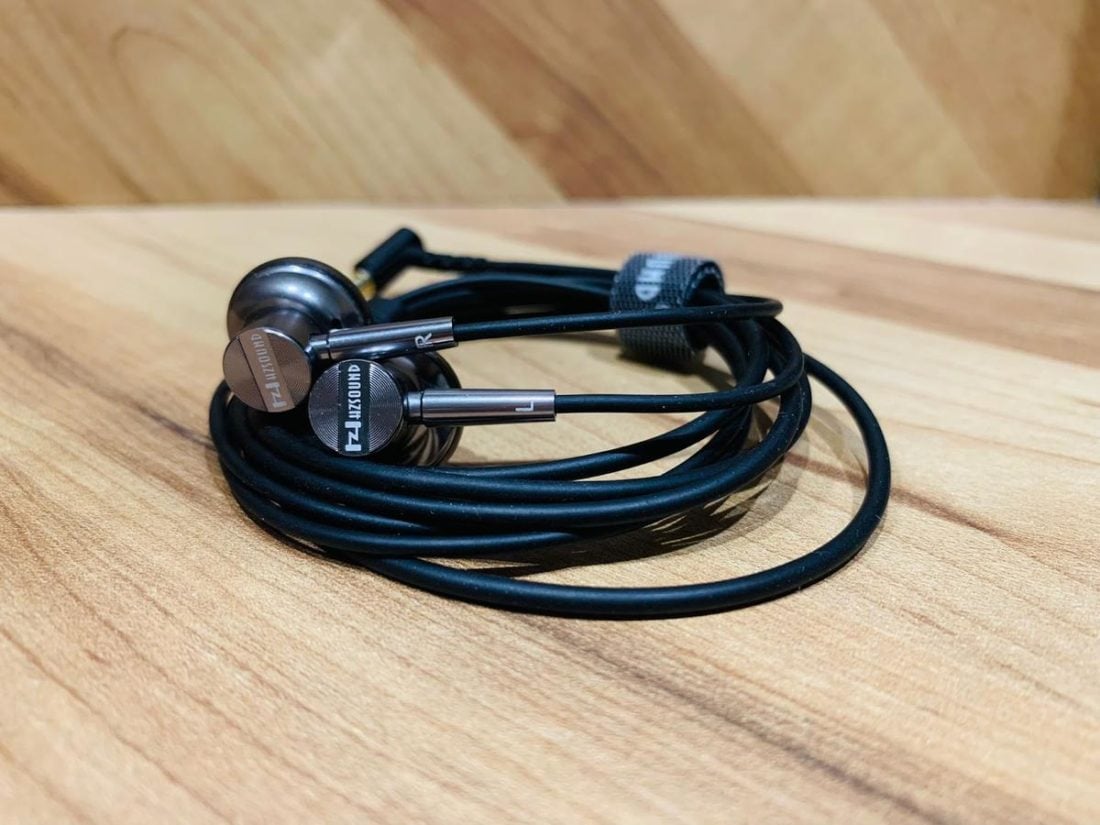
Isolation and earbuds are oxymorons, and the Bell Rhyme has zero isolation, as per all other earbuds, since the transducer is situated outside the ear canal. This gives earbuds superior soundstage compared to IEMs, but at the expense of isolation and perhaps sub-bass response.
The minimal isolation may be a pro or con, as some may want situational awareness. Otherwise, I do not recommend them for use in subways or buses due to outside noise getting in, and one may try to jack up the volume to overcome the noise (which can be bad for hearing health).
Comfort
The Bell Rhyme are very ergonomic, light, and comfortable. No issues with using them for marathon listening sessions.
The center of gravity of these earbuds is very well designed, with the long thin stem counter-balancing the weight of the shells. Even on robust shaking or turning of the head, these earbuds stay in situ!
Internals
The Bell Rhyme use a 15 mm composite polymer diaphragm dynamic driver with a rubidium magnet and CCAW voice coil. HZSound markets this composite polymer diaphragm as being durable and able to sustain rapid vibrations, thus giving low distortion values.
They are easily drivable, and amplification is not necessary. Though soundstage and dynamics may improve with power.
HZSound Bell Rhyme Sound
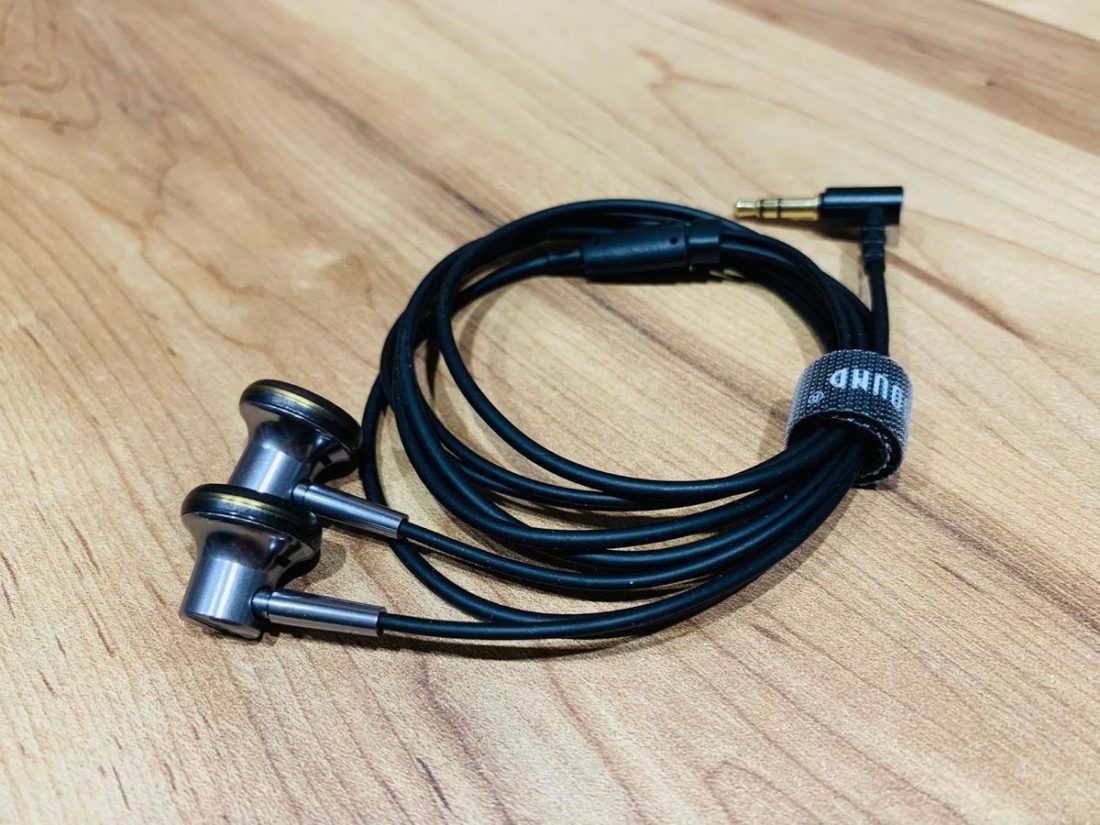
The Bell Rhyme are a well-balanced U-shaped sounding set. Tonally, this gives them an all-rounder appeal, and other than diehard bassheads or trebleheads, most should find something to appreciate about the tuning.
Technicalities are above average for a budget (sub-USD$30) pair of earbuds, with imaging, instrument separation, and layering particular highlights. The soundstage is wide, though height and depth are about average for a similarly priced set. Micro-details are decent enough, but perhaps not class-leading.
While not literally clear as a bell (forgive the pun), the Bell Rhyme have quite good clarity and do live up to their namesake.
Timbral accuracy for vocals and acoustic instruments is really well done and timbre freaks will have nothing to complain about!
Bass
Mid-bass on the Bell Rhyme is just a tinge north of neutral, with sub-bass roll-off, as per most of their earbuds brethren. There is merely a slight tickle of sub-bass rumble on bass heavy music, so bassheads will need to look elsewhere for their bass kicks (cough cough cough).
In terms of bass quality, the bass is on the faster side with just a slight mid-bass bleed, which does warm the lower midrange. Bass texturing is decent enough.
Midrange
The lower midrange is a tinge depressed, with the upper mids having a boost. Female vocals are more prominent than male vocals.
As per the Fletcher Munson curve, jacking up the volume a lot may cause the upper midrange region to be fatiguing, but the Bell Rhyme are not fatiguing (by any means) at moderate volumes, and are quite well suited for longer listening sessions.
Treble
The lower treble continues on from the boosted upper mids, but the upper treble rolls-off early. The Bell Rhyme are not the most detailed or airy set, but they eschew a hyper-boosted “fake clarity” for a more natural sounding treble.
Sibilance is mild and treble sensitive folk should be quite at home here.
Comparisons
I compared the Heart Mirror with some other budget earbuds. Ding Dong Bell, which earbuds will be the winner?
Vs. Smabat M2S Pro (150 ohm driver)
The Smabat M2S Pro are an innovatively designed pair of earbuds that allow the user to switch between several aftermarket drivers and dampers to give a mind-boggling set of sonic signatures. This makes them extremely versatile.
Using the aftermarket 150 ohm driver with the M2S Pro, which seems to be a favored configuration for the earbud fanatics on Head-Fi, gives the M2S Pro a neutral signature with a sub-bass boost.
This version of the M2S Pro with the 150 ohm driver makes them rather hard to drive, but they have more sub-bass extension than the Bell Rhyme. The Bell Rhyme have less mid-bass bleed and a thinner note weight.
The Bell Rhyme have better soundstage, imaging, instrument separation, and clarity, though the SMABAT M2S Pro do have a detachable cable.
Vs. Yincrow X6
The Yincrow X6 are an L-shaped bassy and warm set with a thick note weight, good timbre, and a very non-fatiguing sound profile. Think of the X6 as the BLON BL-03 (do they ring a bell?) of the earbud world – in other words, good tonality and timbre, but at the expense of technical performance.
The X6 have deeper sub-bass extension and a more textured bass-line, but in soundstage, micro-details, imaging, instrument separation, and clarity, the Bell Rhyme are a league ahead.
Where to Buy
Conclusion
The Bell Rhyme are a budget pair of earbuds with few weaknesses, and they excel at imaging, instrument separation, and layering. Timbre is very natural and coupled with the U-shaped all-rounder signature, most earbud enthusiasts should find something to like about them.
They are easy to drive, and though the cables are non-detachable, they are well-made with minimal microphonics.
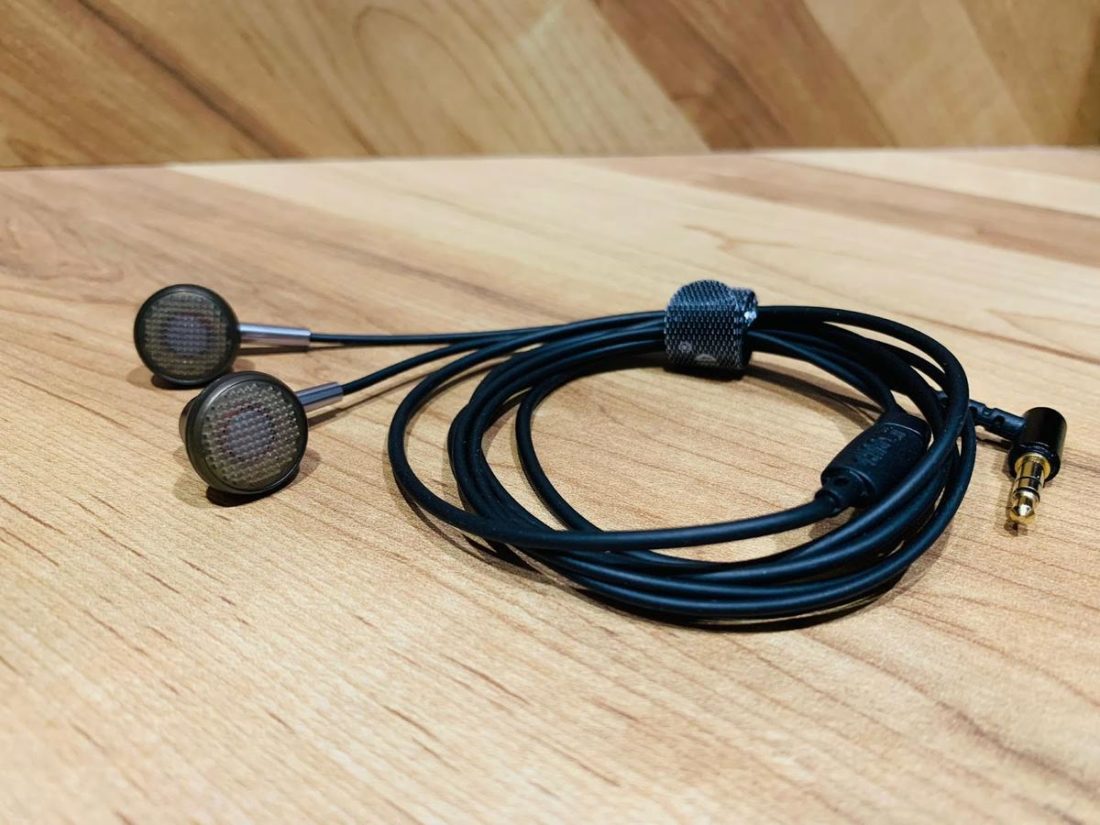
Small nitpicks would be a lack of extension at both ends (especially sub-bass) and perhaps they are not the most detailed. Having said that, for the low asking price, I do think they have a superb price-to-performance ratio, and I recommend them to those wanting to dive into the earbud rabbit-hole.
